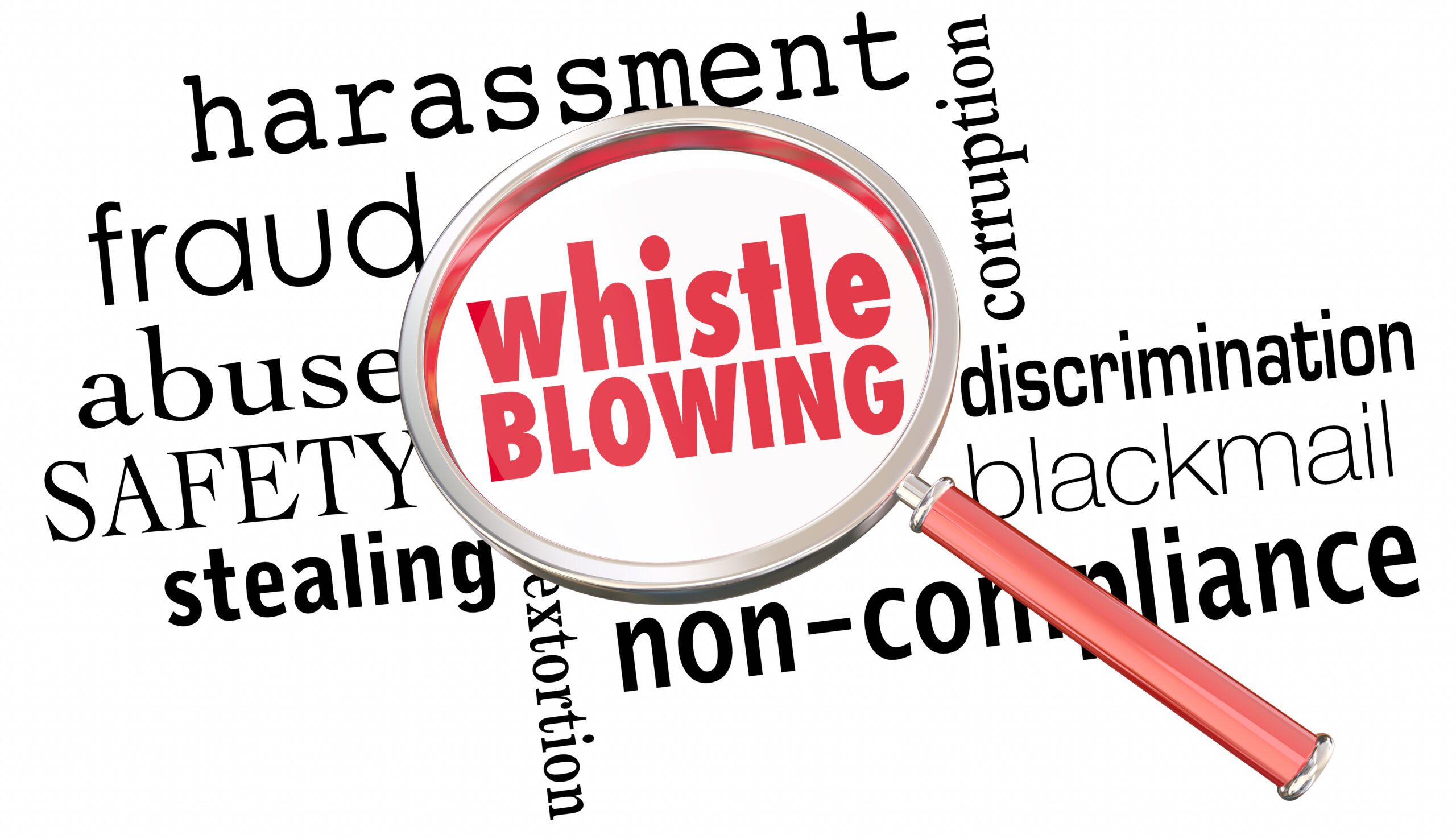If you notice wrongdoing at work, such as practices that could harm people (whether colleagues or the public) or that cause damage to the environment, you might wonder about the implications of reporting it. This process is widely known as “whistleblowing”. 
The short answer to the question in the heading is ‘Yes’. You shouldn’t have to risk your job or reputation for having the courage to speak up about illegal behaviours at work. It’s called making a ‘protected disclosure’.
Last year, there were a number of cases on whistleblowing that confirmed the following principles:
- If you blow the whistle and a colleague causes you detriment that leads to your dismissal, you could receive compensation for losing your job (and that colleague could be held personally liable).
- This applies even if you are in the UK and the colleague/s are overseas (assuming there is a close enough link between those colleague/s and UK employment law).
- Your statement should be as factual and specific as possible, but context is also important – this might include an individual’s conduct, gestures, comments, emails and phone calls.
- Even if you were lawfully dismissed, you could make a claim for compensation if you can prove you were victimised for blowing the whistle and that made your position untenable.
As you can see, you’re protected in many situations – but every situation is different so it’s wise to take specialist advice at an early stage.
Of course, we can help with that.
—–
By the way, new EU laws are due in 2021 designed to add further protection to whistleblowers (yes, yes, we know the UK might not be part of the EU by then).
Here are some of the planned changes:
- Organisations that employ over 50 people will have to set up safe channels for reporting wrongdoing, both internally and to national authorities. This applies to the public and private sector.
- National authorities will have to inform citizens and train public officials on how to deal with whistleblowing.
- Whistleblowers will be encouraged to report any wrongdoing via internal channels first but won’t be penalised if they go straight to external channels.
- Whistleblowers will be protected from retaliation such as suspension, demotion and intimidation, and so will any colleagues and relatives who help them.
- Organisations accused of wrongdoing will have to respond within three months of the accusation (stretching up to six months in some cases).
Further reading
For more information on this subject, you might find our other articles useful:
- Whistleblowing: The proper procedure
- Whistleblowing: Top tips you need to know
- Witnessed malpractice in the workplace?
Need help?
For a free initial review of your case, call 0808 168 7288 or complete a Free Online Enquiry.
We have already helped thousands of people to win millions of pounds in compensation.
You have a choice of ways to pay, including ‘no win, no fee’.
